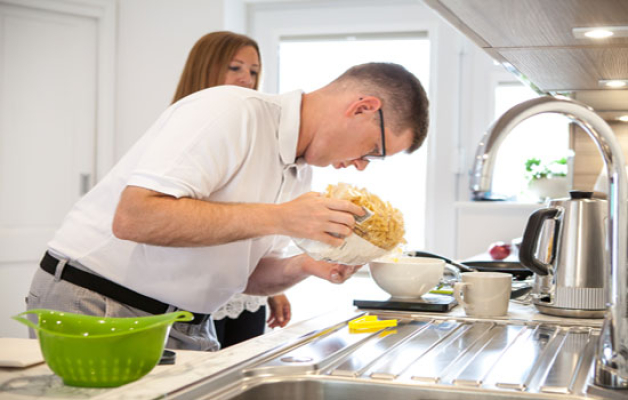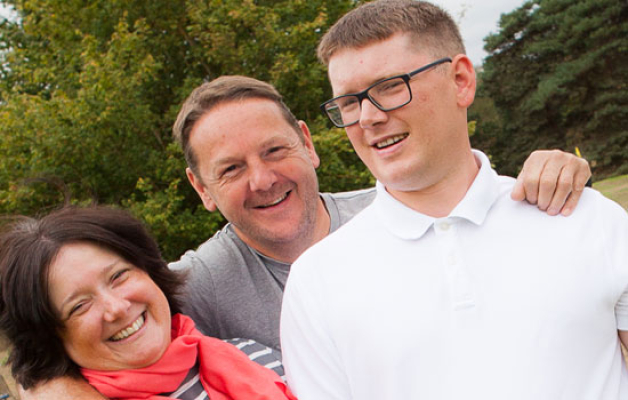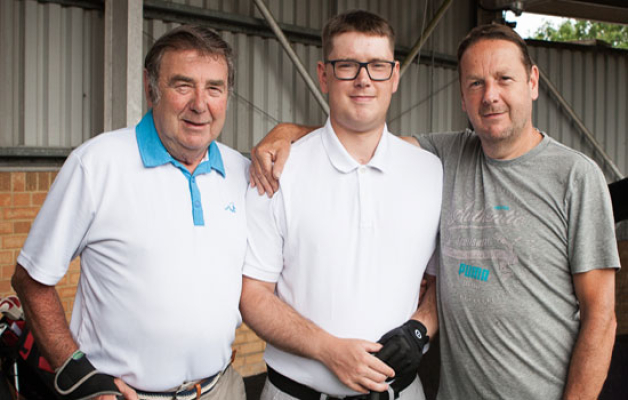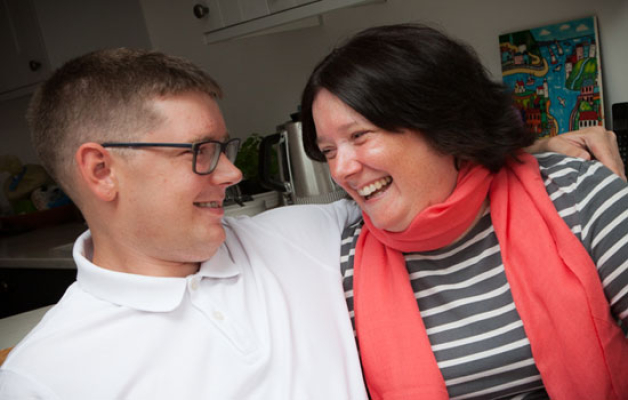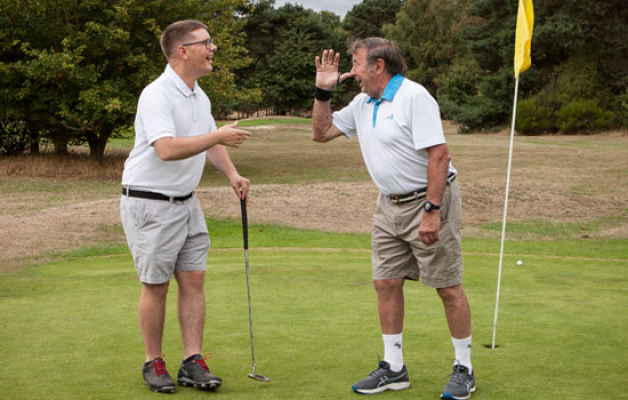This unique journey helps us to reflect not only on the life long and enduring consequence of brain injury for the individual, but also the essential role that families play supporting their loved one on their journey. From the early days of Chris’s recovery, through to the latter stages of rehabilitation, his parents and his immediate family have played an essential role in his recovery by offering practical and emotional support.
The support that he receives from his family provides security and stability, this in turn enables Chris to challenge his performance and participation with activities. Chris had clear ideas about how he wanted to spend his time and focus his efforts. Occupational therapy intervention was tailored to Chris’s unique needs and interests, the approach used considered his motivating factors within a therapeutic framework building confidence and facilitating skill acquisition.
Chris states that the focus of rehabilitation is about ‘getting back to normal’. Denise reflects on how she views her role as a facilitator for Chris, providing opportunities for him to achieve the goals that are important to him. The value of this ‘enabling environment’ cannot be underestimated in terms of the ‘scaffolding’ of social support that is offered to Chris, reinforcing the view that he can achieve his potential. This is reflected nicely in the family mantra… ‘onwards and upwards’.

